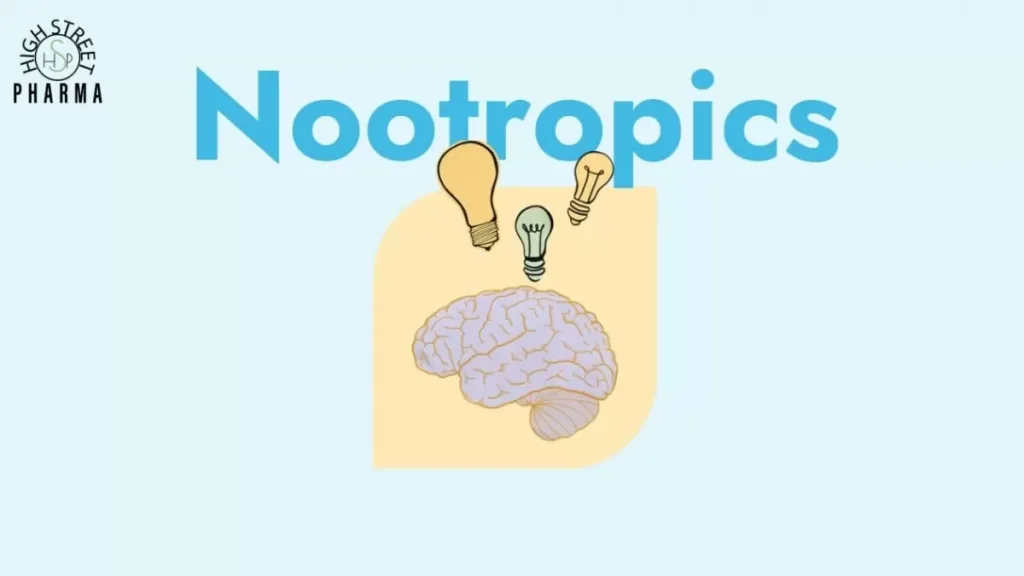
© Copyright 2023 Mark Lopez . All rights reserved.
Introduction: Nootropics, commonly known as “smart drugs” or “cognitive enhancers,” are a category of substances that claim to enhance cognitive functions such as memory, focus, creativity, and overall mental performance. The use of nootropics has gained popularity in recent years, driven by a growing interest in optimizing brain health and cognitive abilities. This article delves into the world of nootropics, examining their various types, mechanisms of action, potential benefits, risks, and the scientific evidence surrounding their efficacy.
Types of Nootropics: Nootropics encompass a wide range of compounds, each with unique effects on brain function. These can be divided into several categories:
- Racetams: This class includes well-known nootropics like piracetam and aniracetam. They are believed to enhance memory and learning by modulating neurotransmitter activity and improving communication between brain cells.
- Cholinergics: These compounds boost the production or availability of acetylcholine, a neurotransmitter vital for memory and learning. Examples include citicoline and alpha-GPC.
- Natural Compounds: Some herbal extracts and natural substances like ginkgo biloba, bacopa monnieri, and rhodiola rosea have been used traditionally to support cognitive function.
- Adaptogens: These substances, such as ashwagandha and panax ginseng, are believed to help the body adapt to stress, potentially benefiting cognitive resilience.
- Stimulants: While not always considered traditional nootropics, stimulants like caffeine and modafinil can enhance alertness and focus.
Mechanisms of Action: Nootropics exert their effects through various mechanisms, often involving neurotransmitters, brain cell energy, and cerebral blood flow. For instance, some increase the production of neurotransmitters like acetylcholine, dopamine, or serotonin, while others enhance blood flow to the brain, ensuring a steady supply of oxygen and nutrients.
Potential Benefits: The potential benefits of nootropics have intrigued researchers and individuals seeking improved cognitive performance. These benefits may include:
- Enhanced Memory: Nootropics like racetams may improve memory recall and retention by modulating neurotransmitter systems.
- Increased Focus: Certain nootropics can promote concentration and attentiveness by influencing neurotransmitter balance and brain activity.
- Cognitive Clarity: Users often report experiencing improved mental clarity, allowing for clearer thinking and problem-solving.
- Mood Enhancement: Some nootropics have been associated with better mood regulation, potentially due to their impact on neurotransmitters like serotonin.
- Neuroprotection: Certain nootropics possess antioxidant properties that might help protect brain cells from oxidative stress and age-related cognitive decline.
Scientific Evidence and Controversies: The scientific community’s view on nootropics is mixed. While some studies suggest positive effects on cognitive function, the quality of research varies, and many claims lack robust clinical evidence. Some concerns include:
- Limited Research: Many nootropics lack rigorous clinical trials and long-term safety data, making it challenging to draw definitive conclusions about their efficacy.
- Individual Responses: Responses to nootropics can be highly individual, with factors such as genetics, health status, and dosage playing a role.
- Safety: The safety of certain nootropics remains debated. Some, like modafinil, require medical supervision due to potential side effects.
Risks and Considerations: While nootropics hold promise, it’s important to consider potential risks:
- Side Effects: Common side effects include headaches, digestive issues, and sleep disturbances. More severe effects may occur with improper usage.
- Interaction with Medications: Nootropics can interact with prescription medications, potentially leading to adverse effects.
- Long-Term Effects: The long-term effects of sustained nootropic use, particularly for non-prescription compounds, are not well understood.
Conclusion: Nootropics offer a fascinating avenue for exploring cognitive enhancement, but caution is essential. While some individuals may experience cognitive benefits, the lack of standardized regulations, mixed scientific evidence, and potential risks call for careful consideration. Consulting a healthcare professional before using nootropics is crucial, as they can help navigate potential benefits and risks while ensuring your brain health remains a top priority in the pursuit of cognitive optimization.

